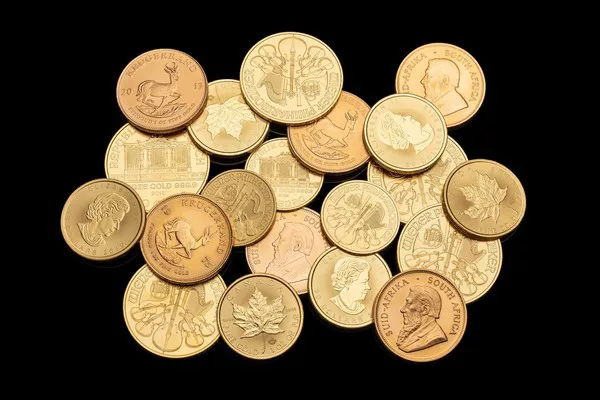Gold has long been regarded as a valuable and stable investment. Many people wonder whether they can sell their gold to the bank as a convenient and secure way to cash in on their precious metal holdings. While the idea of selling gold to a bank may seem straightforward, there are several factors to consider before you decide if this is the right option for you. In this article, we will explore the process of selling gold to a bank, the advantages and disadvantages, and alternative options available to you.
Can I Sell My Gold to the Bank?
The short answer is yes, you can sell your gold to a bank. Most major banks offer services for buying and selling gold, although the availability of these services may vary depending on your location and the specific bank. However, selling gold to a bank is not as simple as walking into your local branch and exchanging your gold for cash.
Here are the steps you should follow if you want to sell your gold to a bank:
Research Banks in Your Area: Start by researching the banks in your area that offer gold buying services. Not all banks provide this service, so you may need to call or visit different branches to find one that does.
Contact the Bank: Once you have identified a bank that buys gold, contact them to inquire about their specific process, including any fees or requirements. It’s essential to understand the terms before proceeding.
Make an Appointment: Banks typically require you to make an appointment to sell your gold. This allows them to allocate the necessary resources and ensure a smooth transaction.
Bring Your Gold Items: When you visit the bank for your appointment, bring the gold items you wish to sell. It’s important to note that the bank will assess the purity and weight of your gold to determine its value.
Receive an Offer: After evaluating your gold, the bank will make you an offer based on the current market price and the purity of your gold. You can choose to accept or decline the offer.
Complete the Transaction: If you accept the bank’s offer, you will need to complete the necessary paperwork and provide identification. Once the transaction is finalized, you will receive payment in the form of cash or a bank transfer, depending on the bank’s policy.
Advantages of Selling Gold to the Bank
Trust and Security: Selling your gold to a bank provides a level of trust and security. Banks are reputable financial institutions with established procedures and regulations to ensure the legitimacy of transactions.
Convenience: If you have a bank nearby that offers gold buying services, it can be a convenient option as you can complete the transaction in a familiar and secure environment.
Competitive Pricing: Banks typically offer competitive prices based on the current market rates for gold. You can expect to receive a fair value for your precious metal.
Professional Assessment: Banks employ trained professionals who can accurately assess the purity and weight of your gold items, ensuring a fair evaluation.
Disadvantages of Selling Gold to the Bank
Limited Availability: Not all banks offer gold buying services, so you may need to search for a suitable bank in your area. This limited availability can be inconvenient.
Lower Payouts: Banks may not offer the highest payouts for your gold compared to other options like specialized gold dealers or online marketplaces.
Transaction Fees: Some banks may charge fees or commissions for buying your gold, which can reduce the overall amount you receive.
Limited Selection: Banks may only accept certain types of gold items, such as coins and bars, and may not buy jewelry or other gold ornaments.
Alternative Options for Selling Gold
While selling gold to a bank is one option, there are several alternative ways to sell your gold, each with its own set of advantages and disadvantages:
Local Gold Dealers: Local gold dealers and jewelry stores often buy gold from individuals. They may offer competitive prices and a more extensive range of accepted gold items.
Online Gold Buyers: Numerous online platforms specialize in buying gold. You can mail your gold items to them for evaluation and receive payment once they assess the value. However, be cautious and choose reputable online buyers.
Auction Houses: If you have valuable or rare gold items, consider selling them through auction houses. Auctions can potentially fetch higher prices, especially for collectors’ items.
Pawnshops: Pawnshops are another option for selling gold, but they may offer lower prices compared to other buyers.
Gold ETFs: If you want to maintain exposure to the price of gold but need cash, consider selling shares of a gold exchange-traded fund (ETF). This option allows you to trade gold indirectly through the stock market.
Conclusion
Selling your gold to the bank is indeed possible, and it offers trust, security, and competitive pricing. However, it’s essential to weigh the advantages and disadvantages carefully and consider alternative options before making a decision. Depending on your specific circumstances and the type of gold items you have, you may find that other buyers or methods provide better value and convenience. Regardless of your choice, always do your due diligence and research to ensure a fair and profitable transaction when selling your gold.


